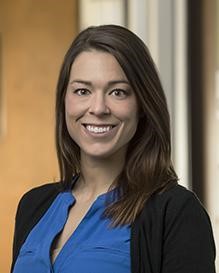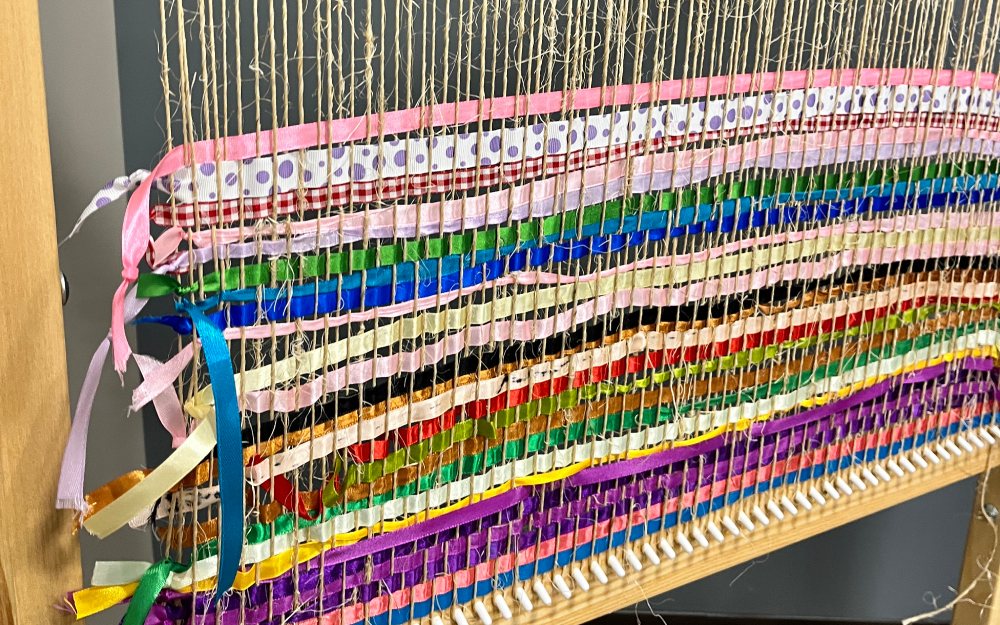
Former Appleton patient says her therapist is why she lives with gratitude and hope
01/18/23 12:30:pmBattling major depression, suicidal ideation, and self-harm, Ciara participated in the Focus Depression Recovery adult partial hospitalization program at Rogers in Appleton three times, in addition to a residential stay in Oconomowoc.
“Each time at Rogers had an impact on me,” Ciara says. “However, the third and final time in Appleton was the most significant.”

“I thought I was a lost cause because I didn’t want to live a life filled with suicidal thoughts,” she says. “Chloe told me even though the thoughts may never go away completely, they would become less severe and more manageable. I was stuck in black and white thinking patterns and told her that if I couldn’t live a life with zero suicidal thoughts, it isn’t worth it to me. Chloe really stuck with me, and I appreciate that.”
Chloe recalls working with Ciara.
“Some days we sat in silence, and some days she was fully engaged,” says Chloe. “She would ask me to give up on her, discharge her, or go away. But she kept coming back to work on using skills.”
Ciara says although she can’t pinpoint the exact moment things started to change, she credits dialectical behavior therapy with helping her find the road to recovery.
“Being aware of my negative thought patterns helped me finally realize how recovery feels,” she says. “Emotional regulation was key because I would spiral in a short amount of time. Distress tolerance helped bring me out of the moment, not necessarily making me feel better, but just enough where I wouldn’t try to hurt myself.”
Although trying to practice mindfulness was difficult at first, Ciara says it became another skill in her toolbelt.
“It seemed like mindfulness wasn’t going to do anything,” she says. “It seemed weird to focus on one thing when I had so many thoughts coming in and I was in crisis. I wasn’t sure how mindfulness was going to help me mange that. It was confusing and frustrating, but it was part of my treatment every day. Eventually I got there. I’m not able to stay 100% mindful all the time, but I work on it and stay persistent.”
Additionally, group therapy gave Ciara a chance to make connections.
“I really liked it and that surprised me,” she says. “I generally don’t like groups of people, and talking about why I was at Rogers didn’t sit well with me initially. But once I got into it and started to hear other people were going through similar things, it made me feel not so alone and that helped.”
Chloe says as Ciara’s discharge date was approaching, Ciara expressed feeling like she wasn’t making progress and was feeling more hopeless.
“Although she knew the skills well and was able to teach them to her peers, she didn’t think they would or could work for her,” Chloe says. “I realized we had to do something different, so I challenged her to reflect on what fears were keeping her stuck. Ciara was able to identify several and that allowed us to challenge and plan ways to address them. I started to see Ciara gain more confidence in herself and start using the skills in different ways.”
Before coming to Rogers, Ciara was hospitalized for overdosing three times within three months. She has been out of the hospital since finishing treatment in 2019 and is enjoying her life.
“I’m active within my family functions and have healthy relationships with friends,” she says. “I can’t explain in words how grateful I am to Rogers and everything I learned during each time spent there. With the help of Chloe, I’m able to not only survive, but also live gratefully and hopefully."

“I like advocacy and it’s something I wish I had when I was in high school,” she says. “I don’t want anyone to feel like they can’t talk about their mental health and fear they’ll be judged. After a presentation at a high school, a student told me she wasn’t feeling safe and her parents didn’t understand. I walked with her to a school counselor.”
Ciara is currently working toward her bachelor’s degree in psychology and would like to offer group therapy and evidence-based treatment like what she received at Rogers.
“I want to provide the space to others to get the kind of help I did,” she says.
Chloe says she’s grateful to have been part of Ciara’s journey.
“It’s rewarding to hear the progress Ciara continues to make,” she says. “I think she is, and will be, a great support for others.”





